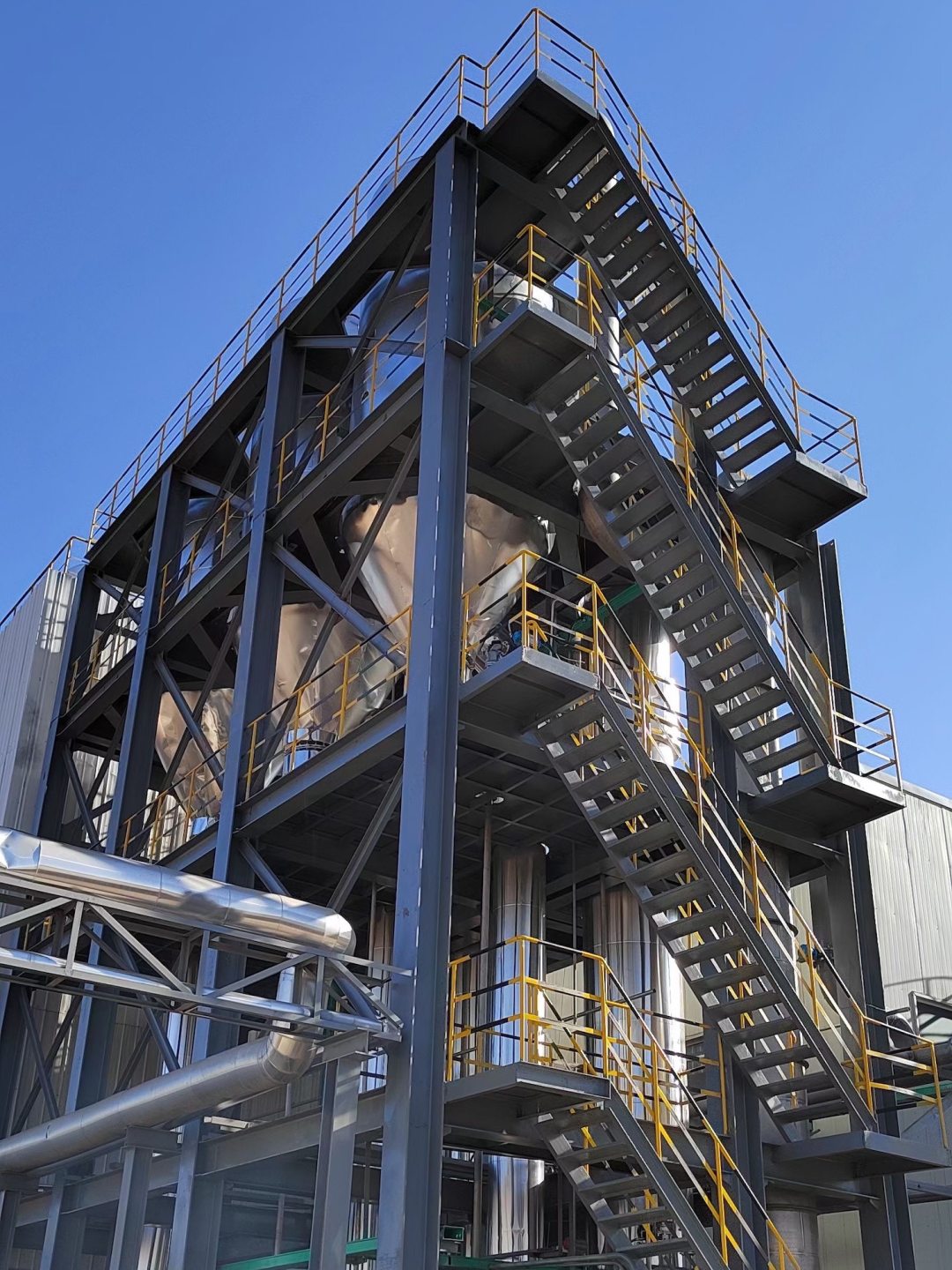Operation Principle of MVR Evaporator
The MVR evaporator operates by compressing secondary steam generated during the evaporation process using a compressor. The compression increases the pressure and temperature of the secondary steam, raising its enthalpy. The compressed steam is then sent to the heating chamber of the evaporator as heating steam to maintain a boiling state of the liquid material. The heating steam itself condenses into water. This process efficiently utilizes steam that would otherwise be wasted, recovering latent heat and simultaneously improving thermal efficiency.
Inlet Water Quality for MVR Evaporator
(1) Boiling Point Requirement for Inlet Material: The steam compressor is the core device of the MVR evaporator, and the temperature rise generated by the steam compressor is limited. Thus MVR evaporator system requires the boiling point elevation of the inlet liquor to be as small as possible, preferably less than 15°C, to achieve energy-efficient evaporation.
In theory, any high temperature rise can be achieved through multi-stage compression, but this leads to increased power consumption and reduced safety performance during the operation of multi-stage compressors.
(2) Material Requirements for Inlet Water Quality: From the perspective of the operating principle of the MVR evaporator, the components and accessories of the MVR evaporator system, such as preheater, heater, gas-liquid separator, steam compressor, vacuum pump, and cleaning system, are mostly made of metal. Therefore, the MVR evaporator is not suitable for materials containing strong acids or bases.
(3) If the material contains volatile, flammable, or explosive substances, safety accidents are likely to occur during compression, and the MVR evaporator should not be used.
(4) The MVR evaporator system is more suitable for evaporating clean materials. Excessive impurities in the water will significantly reduce the stability of the MVR evaporator system.
Inlet Indicators for MVR Evaporator
(1) Ca2 and Mg2 should be less than 100mg/L. If Ca2 and Mg2 exceed 100mg/L, scaling during evaporation occurs rapidly.
(2) silicon or silicides should be less than 30mg/L, otherwise, scaling may occur.
(3) Cyanides should not be present, as leakage can lead to explosions.
(4) pH value should be between 5 ~ 8, avoiding extremes.
(5) Fluoride ions should be below 20ppm, especially as they can corrode titanium materials.
Contact US
Please feel free to reach out for proposals


